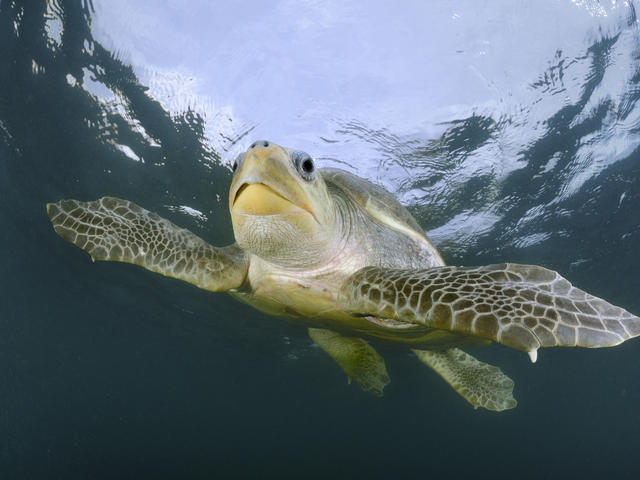MORRO AYUTA, Oaxaca — The Mexican Navy seized more than 12,000 turtle eggs that had been illegally removed from nests on the coast of Oaxaca and Michoacán and loaded in sacks in preparation for sale.
Patrols by the Navy and federal environmental inspectors on the Morro Ayuta beach in Oaxaca (between Huatulco and Salina Cruz) found eight sacks containing 10,000 eggs. Another subsequent patrol on the same beach netted another 2,000.
Meanwhile, the haul in Michoacán was rather smaller at just 188 eggs.
The eggs were laid by Olive Ridley sea turtles, considered vulnerable to becoming an endangered species if circumstances do not change.
The name for this sea turtle is tied to the color of its shell—an olive green hue. They are the smallest of the sea turtles and currently the most abundant. Their vulnerable status comes from the fact that they nest in a very small number of places, and therefore any disturbance to even one nest beach could have huge repercussions on the entire population.
Sea turtles are a fundamental link in marine ecosystems and help maintain the health of coral reefs and sea grass beds. Olive Ridley turtles also provide a type of refuge for many seabirds in the Eastern Pacific, allowing them to perch on their shells as the turtles surface to bask in the sun.

The name for this sea turtle is tied to the color of its shell—an olive green hue. (Photo: worldwildlife.org)
Harvesting either the turtles or their eggs is prohibited under Mexican law. Mexican Navy authorities work along thousands of miles of coast to establish marine protected areas, and this way ensure sea turtles have a safe place to nest, feed and migrate freely
The seized eggs were shipped to the Mexican Turtle Center in Mazunte, located between Huatulco and Puerto Escondido, where they will be incubated and hatched.
– Sources:

